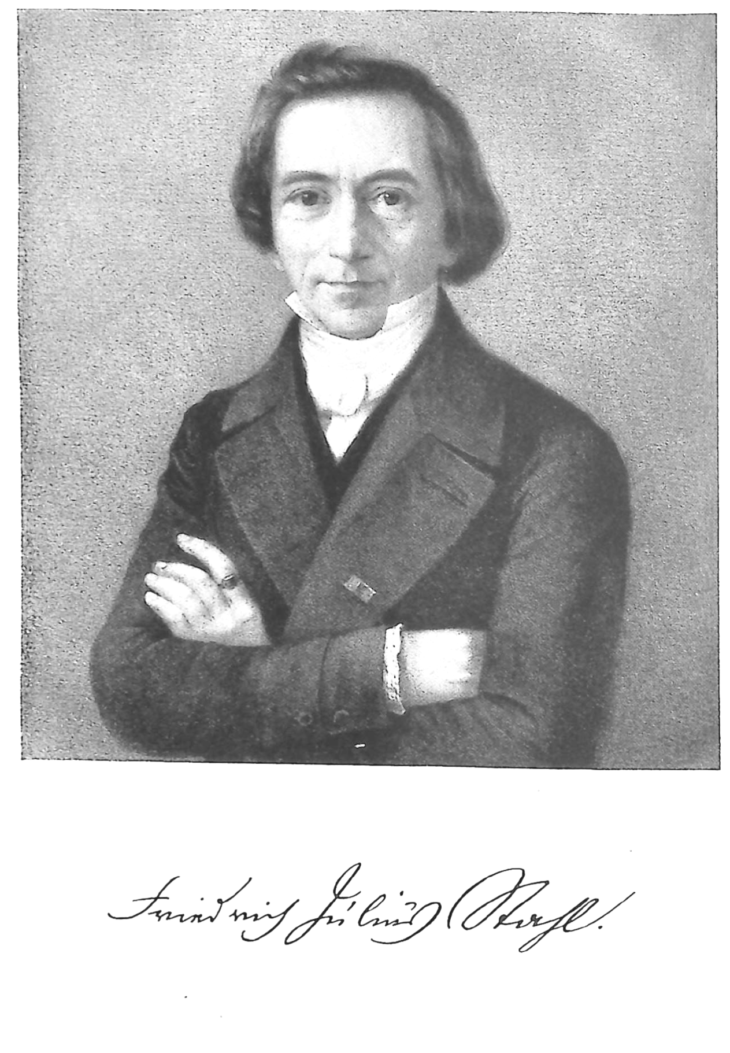
Recovering the Principles of Historic Christian Jurisprudence
Friedrich Julius Stahl mapped out a conservative Christian legal philosophy harvesting the fruits of the Western legal tradition. His treatment makes them available to a new generation unschooled in its own inheritance.
Stahl returns us to a broadly common-law-oriented jurisprudence integrating custom and legislation, justice and law, rights and institutions, the received historical law and the needs of the here and now, considerations of utility and God-ordained universal standards. He opens the door to restoring the balance between individual rights and an objective legal order which both conditions and protects those rights. He returns us to a jurisprudence with a better understanding of higher law by expanding upon and consolidating the conservative principles first enunciated by Edmund Burke.
 About the Iron Cross on the cover of the books: The Iron Cross was instituted in Prussia during the war for liberation against Napoleon, and was a symbol of Christian nationhood before Otto von Bismarck converted it into a symbol of German nationalism. The rendition presented here was the device of the Neue Preussische Zeitung, the “New Prussian Daily”, which was a conservative newspaper to which Stahl regularly contributed. The inscription reads “Forward with God for King and Fatherland!” For more on the Neue Preussische Zeitung, follow this link.
About the Iron Cross on the cover of the books: The Iron Cross was instituted in Prussia during the war for liberation against Napoleon, and was a symbol of Christian nationhood before Otto von Bismarck converted it into a symbol of German nationalism. The rendition presented here was the device of the Neue Preussische Zeitung, the “New Prussian Daily”, which was a conservative newspaper to which Stahl regularly contributed. The inscription reads “Forward with God for King and Fatherland!” For more on the Neue Preussische Zeitung, follow this link.
Authority Not Majority is a biography of Stahl, which was written by way of introduction to the translations.
The Philosophy of Law – Stahl’s magnum opus – is here published complete using the thoroughly revised and greatly expanded second (and further) editions. As a good deal of confusion reigns with regard to this work, a short explanation of it is in order.
 The first edition was entitled Die Philosophie des Rechts nach geschichtlicher Ansicht [The philosophy of law according to the historical view]. It was published in three books arranged in two volumes. The first volume, entitled Die Genesis der gegenwärtigen Rechtsphilosophie [The genesis of contemporary legal philosophy] was published in 1830 (see accompanying figure).
The first edition was entitled Die Philosophie des Rechts nach geschichtlicher Ansicht [The philosophy of law according to the historical view]. It was published in three books arranged in two volumes. The first volume, entitled Die Genesis der gegenwärtigen Rechtsphilosophie [The genesis of contemporary legal philosophy] was published in 1830 (see accompanying figure).
The second volume was entitled Christliche Rechts- und Staatslehre [The Christian Doctrine of Law and State]. It was published in two parts. The first, published in 1833, covered philosophical foundations, principles of law, private law, and public law. The second, published in 1837, went into more detail regarding state law, covering the basic principles of states, state constitutions, and administrative law.
This first edition was thoroughly revised and expanded beginning in 1845. The whole was now christened The Philosophy of Law and was likewise published in two overarching volumes. As stated above, it is this expanded and revised edition that is published in translation here.
Volume I: The History of Legal Philosophy, is published in two parts: The Rise and Fall of Natural Law, and The Recovery of Historical Law. The two are published together in one volume in the hardback version.
Volume II: The Doctrine of Law and State on the Basis of the Christian World-View, is published in four books. The first three are published separately as paperback versions, and together in the hardback version.
The first book, Philosophical Foundations, provides the essential underpinnings to a Christian legal philosophy.
The second is Principles of Law, providing the core principles to be fleshed out in the remainder of the series.
The third, Private Law, provides a detailed exposition of the doctrine of subjective right, natural and acquired rights, and the institutions of private law: property, contract, marriage and the family, inheritance.
The fourth, The Doctrine of State and the Principles of State Law, is published in both paperback and hardback versions. It provides a thorough discussion of basic principles of public and constitutional law. Stahl’s treatment is valuable in two respects. It provides essential background to understanding the role of monarchy and estates in pre-modern constitutional systems, something which is sorely needed simply to better understand the past. And it provides a basic framework for understanding the relationship of law and government that is just as relevant today as it was when Stahl was writing. In fact, in many ways it anticipates the important treatment on the subject provided by Friedrich Hayek in Law, Legislation, and Liberty. For more on that subject, please consult Common Law & Natural Rights: The Question of Conservative Foundations.